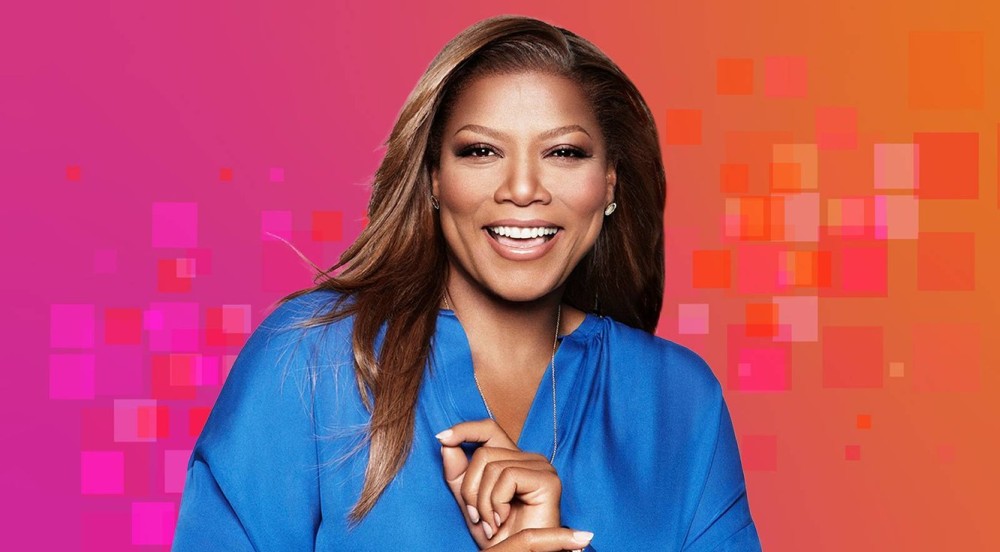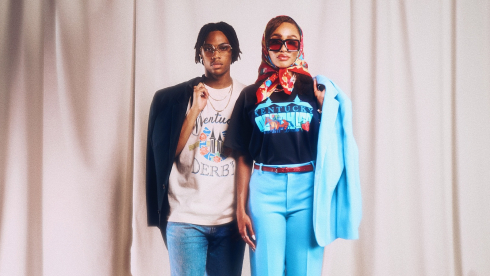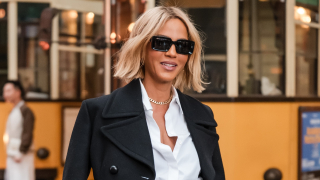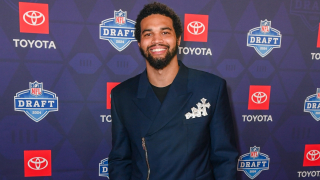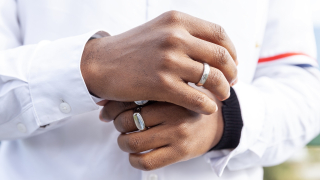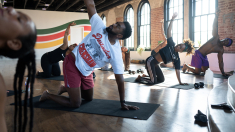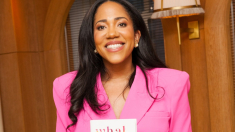From the drop of her debut album, All Hail the Queen, in 1989, it was clear that Queen Latifah would be a nonstop force in hip hop and beyond. The rapper, actress, producer and activist has received numerous awards and has become the “the first of” on numerous occasions. She won the Grammy Award for Best Rap Solo Performance in 1995 for her single "U.N.I.T.Y.," which raised awareness of violence against women and the objectification of Black female sexuality. Its album, Black Reign, became the first album by a solo female rapper to receive a gold certification from the Recording Industry Association of America. She was the first female hip hop artist to be nominated for an Academy Award for her supporting role in the film Chicago in 2003. Coming full circle, this past April, she became the first female hip hop artist to have her first album, All Hail The Queen, inducted into the National Recording Registry.
Now as the world celebrates the 50th anniversary of hip hop, Latifah joins EBONY to look back on the people she’s worked with and the lessons she learned at the onset of her illustrious career. Her musical journey is one of a pioneer who broke barriers and opened up opportunities for others to follow in her regal footsteps.
EBONY: How are you reflecting on the 50th anniversary of hip hop and the massive role you played, especially for women, in the field?
Queen Latifah: I'm excited about it and I'm not surprised by it; I'm actually really proud of it. I can honestly say this is a burgeoning form of music, and I can only imagine how it was for people who were around during the birth of blues, jazz, or the other different forms of music that came about in America, such as rock & roll and folk. And here we are, with hip hop, which is now the number one form of music in the world.
You are part of the golden era of hip hop, what does that mean to you personally?
From our crew Flavor Unit and the Native Tongue Crew, Da La Soul and Q-Tip—everybody—the kind of stuff we were doing at that time, the music we were making, the freedom that we had, the walls we were breaking down—we were changing the music.
What did you glean from your iconic counterparts and inspirations?
From Chuck D and Flava Fav of Public Enemy and Boogie Down Productions to Heavy D and Will Smith, we were going out on tours with them and just learning. MC Lyte and her crew, we were just young kids on the road having people teach us how to tour, how to perform and how to use that stage. We learned to be brave enough to say whatever we wanted to say in the way that we wanted to say it.
How has hip hop changed the landscape of American culture?
This is the voice of our generation. There's a lot of things the world wouldn't have known about if it weren't for us talking about those things on our records. We needed to let them know what was happening. We were letting the world know that there's something else going on, and everything is not necessarily sweet. In my era, we were fighting against crack, cocaine and HIV. We were trying to promote people wearing condoms. We had to make the things we said cool and clever and right for the clubs. I feel that we were so creative being able to pull a lot of that stuff off, and still make you wanna dance at the same time.
Your thoughts on hip hop today?
The more diverse hip hop is, I think, the better it is, the healthier form of music it is—because we get to have so many different flavors and choices.
How has hip hop left its mark on the world of music?
Everybody picks up from hip hop; we changed music, period! Every other form of music borrows little pieces from us, whether it’s the sound of the kicks and snares we use or how we pattern our beats. They’re using that vibe for their genres and manage to make it work because that hip hop beat is what it is.




